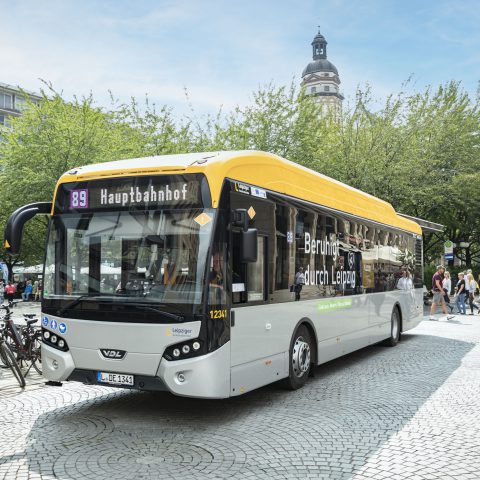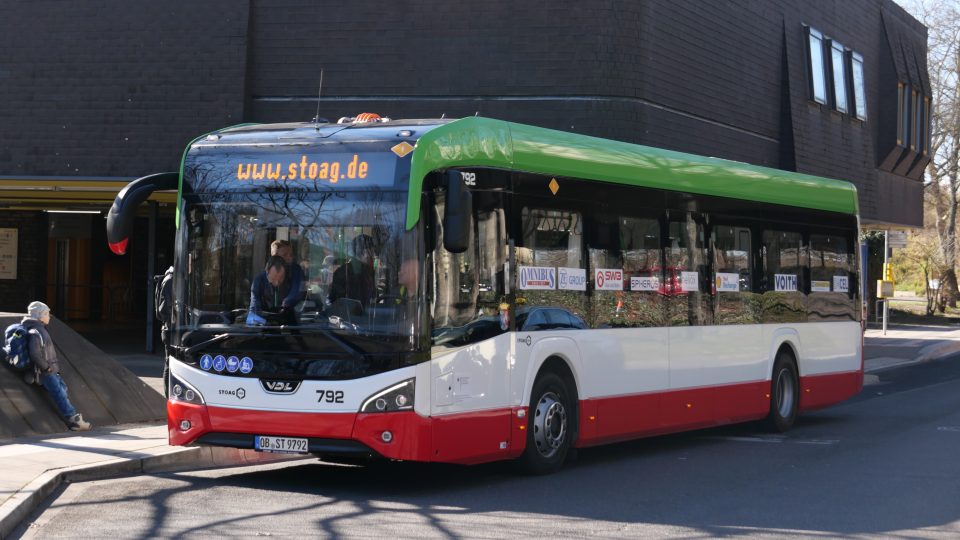Leipzig, LVB turns to INIT Group concerning charge and depot management systems
A total of 21 VDL electric buses on three routes will be brought into service by Leipzig’s public transport operator, Leipziger Verkehrsbetriebe (LVB), before the end of the year. To ensure they are charged efficiently and cost-effectively, LVB relies on the charge management system from INIT’s subsidiary, CarMedialab. LVB‘s depot management system, which is now […]

A total of 21 VDL electric buses on three routes will be brought into service by Leipzig’s public transport operator, Leipziger Verkehrsbetriebe (LVB), before the end of the year. To ensure they are charged efficiently and cost-effectively, LVB relies on the charge management system from INIT’s subsidiary, CarMedialab. LVB‘s depot management system, which is now updated to enable the transition to their new e-buses, is provided by INIT Mobility Software Solutions GmbH, another company of the INIT Group. Communication between the systems is based on standardized interfaces.
«Since interoperability is a top priority at LVB, the new VDV 463 interface for data exchange between charge management, depot management and ITCS systems is already being applied. The interface was developed in cooperation with CarMedialab and published in June. VDV 261 is used for preconditioning the electric buses and the Open Charge Point Protocol (OCCP) in version 1.6 and, in the future 2.0.1, for communication with the charging infrastructure supplied by Siemens», INIT points out.
Four electric bus lines in Leipzig, with INIT devices
By the end of the year, the transport company plans to operate three bus routes exclusively with electric buses. In 2022, LVB will procure 10 articulated buses for another fully electrical line. For charging and parking, LVB is building a new e-bus depot with charging points at the Lindenau depot in western Leipzig. Additional charging options are being created at terminal stops, where the batteries on the roof can be recharged in approximately six to eight minutes during the turnaround time.
Initially, about 40 charging points in the depot and on the route will be used, which will have to be coordinated. All charging points are monitored by the MOBILEcharge charge management system with regard to their availability and functionality, INIT says. Moreover, MOBILEcharge monitors all charging processes. Thanks to the connection to the depot management system, information about dwell times is available.
As a result, the company explains, «the entire period can be used to charge the bus, which makes it possible to charge with less energy and therefore in a more battery-friendly way. Considering time-of-day-dependent energy tariffs in the future will ensure charging can be carried out in a cost-efficient way, with as much energy as is required for the next block. In this way, MOBILEcharge also helps to reduce the overall energy requirement. All necessary information concerning the remaining state of charge is provided to MOBILEcharge from a third-party ITCS via the VDV 463 interface».
The charging plan, i. e. the information about each bus’s pull-out time and its required state of charge, is transmitted to MOBILEcharge by the depot management system MOBILE-DMS from INIT Mobility Software Solutions GmbH (formerly initperdis). MOBILE-DMS has already been tried and tested in Leipzig for the dispatching of 165 diesel buses and trams and is now being expanded to include functionalities related to e-mobility. This includes automatic vehicle allocation, which now considers not only parking spaces and general vehicle qualifications, but also the ranges and charging capacities of the new e-buses. Unforeseen events, such as interruptions of the charging process, can be taken into account in real-time, resulting in adjustments to operational planning.
“We are very pleased to support our long-standing customer, Leipziger Verkehrsbetriebe, with our expertise in implementing technology for e-buses. Choosing INIT Group systems for charging and depot management, LVB already has two important tools from our overall solution for e-mobility which will make it easier for them to introduce the new e-buses,” explains Managing Director of INIT Mobility Software Solutions GmbH Ulrich Schmidt.







